What a year. 2019 has been a whirlwind. Here’s some of my highlights:
- Got a house.
- Got a music room (flooded it, but got everything fixed 48 days later).
- Got a dog (Remi).
- Traveled to Florida, Ohio, and Texas.
- Watched my son start kindergarten.
- Started blogging.
Plus all our family & friends’ graduations, engagements, weddings, and babies. You know how it is, there’s so much going on, especially when you’re raising a family. We’ve had our ups and downs at home, but we’re hanging in there. Life is good.
I’ve learned a ton at work, technically, socially, and emotionally. From overhauling our legacy code, to refining our process, to sharing responsibility with everyone on my team. If I had to sum it all up in a sentence, I’d say I’ve finally accepted my role as a leader. It’s taken years for me to feel comfortable with that idea, but I’m finally there.
I’ll write more about it in 2020.
Until then, I’ve gathered up all the books & audiobooks I’ve read or listened to this year and tried to share a quick snippet about each of them below.
Plus, if you’re interested, I’ve also added my favorite music from the year. And for the developers, a handful of CodePens I’ve been toying with.
Happy New Year.
Jump to: Books, Audiobooks, Music, CodePen
Books
Here are all the books I read this year, in the order I finished them.
-

Mysterious short story about a sea captain who stumbles into a mutiny.
“Everything was mute and calm; everything gray… Shadows present, foreshadowing deeper shadows to come.”
-
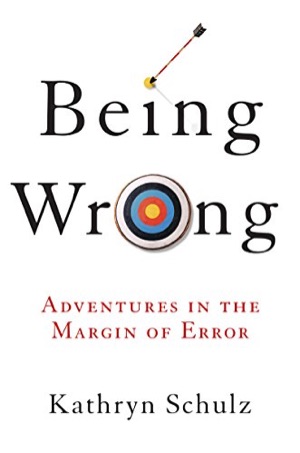
Yes, being wrong sucks, but this book gave me a new perspective: it’s also the key to our creativity, and so much more.
“We already saw that ‘seeing the world as it is not’ is pretty much the definition of erring—but it is also the essence of imagination, invention, and hope.”
-

“To be, or not to be…” You know the story. I was surprised how many other common sayings come from this classic:
- “Brevity is the soul of wit…”
- “Give every man thy ear, but few thy voice…”
- “Though this be madness, yet there is method in’t.”
-

If you ever want a kick to step back and take perspective on your life, give this a read.
“Does a person bathe quickly? Do not say that they bathe poorly, but only quickly. Does a person drink a lot of wine? Do not say they drink badly, but only in abundance. Unless you perfectly understand another’s motives, how can you judge them? Do not mistake your impressions for the whole truth.”
-

Lessons, lessons. There’s a ton of wisdom to glean from these short, insightful letters.
“There is time enough for everything, in the course of the day, if you do but one thing at once; but there is not time enough in the year, if you will do two things at a time.”
“Whatever is worth doing at all, is worth doing well; and nothing can be done well without attention.”
-
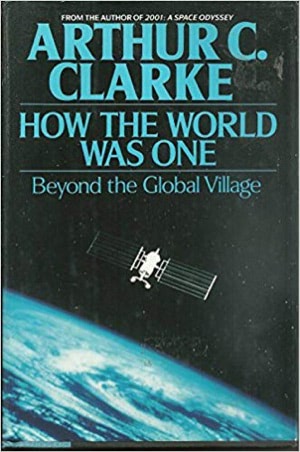
Incredible history of how we got from communicating with jungle drums and smoke signals to satellites and the Internet.
My favorite part was reading about the epic lengths Cyrus West Field and his company went to to make the first transatlantic cables happen: 2,300 miles per cable, 5 complete failures, over 10 years of work, and a Civil War that nearly destroyed their operation—but they still pulled it off.
-

Remarkable story of how we got the dictionary of all dictionaries, the Oxford English dictionary—an inventory of the entire English language.
The project was a proto-Wikipedia, collecting words from hundreds of volunteers, and the most important volunteer was a convicted schizophrenic.
“So enormous have been Dr. Minor’s contributions during the past 17 or 18 years, that we could easily illustrate the last 4 centuries from his quotations alone.”
-
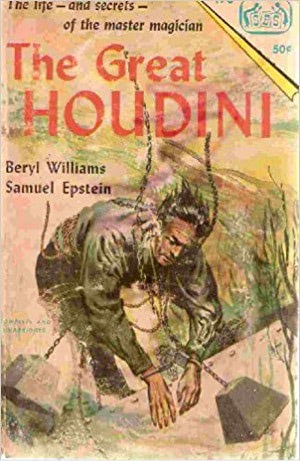
I love magic, so who better to learn about than Houdini? We’ve all heard his name, but hardly know who he was.
“From now on, he decided, he would not be the issuer of challenges, but, instead, the Davidlike accepter of whatever dares the world’s Goliaths could invent. ‘I, Houdini, accept any challenge…’”
“His public was not a master demanding new tricks at every performance; it was his most eager assistant, daily providing the material for its own dramatic entertainment.”
-

All the classic stories: The Tortoise and the Hare, The Boy Who Cried Wolf, The Lion and the Mouse. And all the lessons that go with them:
- “Persuasion is better than force.”
- “Counsel without help is useless.”
- “Avoid a remedy that is worse than the disease.”
-
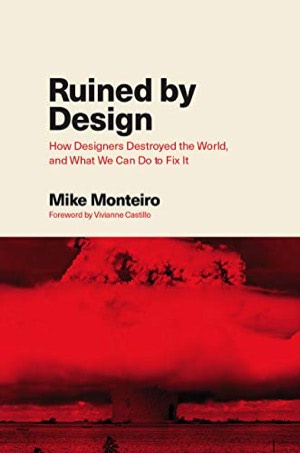
Call to arms for anyone involved in design—which means everyone.
“The world isn’t broken. It’s working exactly as it was designed to work. And we’re the ones who designed it. Which means we fucked up.”
“We’re not hired to just dig a ditch, but to evaluate the economic, sociological, and ecological impact of that ditch. If the ditch fails those tests, it’s our job to destroy the shovels.”
“The best, most effective, way for you to effect change is to stay and fight. Persuade others. Present good solutions, and fight for them. We don’t walk away when things get hard. We walk away when things get impossible.”
-
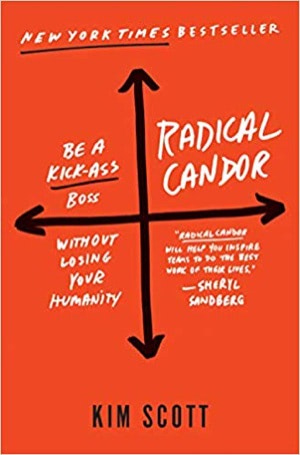
Deeply thoughtful, practical advice for teams. Full of stories and examples to learn from. Chapter 6, “Guidance,” has been the most important chapter for me, personally, this year.
“Bosses get Radically Candid guidance from their teams not merely by being open to criticism but by actively soliciting it. If a person is bold enough to criticize you, do not critique their criticism. If you see somebody criticizing a peer inappropriately, say something. But if somebody criticizes you inappropriately, your job is to listen with the intent to understand and then to reward the candor. Just as important as soliciting criticism is encouraging it between your team members.”
-

Started as a Kickstarter from the folks at ConvertKit. This collection of stories is what finally got me to start my own blog.
To be clear, this isn’t a guidebook for “how to start your own blog.” It’s not full of tips and tricks. It really is just people’s stories—and apparently that’s what I needed to hear.
“For some reason, when we tell stories about these people, we tend to talk a lot about money… This book isn’t about income… This book is about the humans behind the blogs.”
“We hope when you close the back cover of this book you walk away with one very clear message: you are every bit as capable, worthy, and ready to take the leap as the people in this book.”
Audiobooks
Here are all the audiobooks I finished this year, in the order I listened to them.
-

Fascinating exploration of how and why we drive the way we do.
My favorite part of the book is Chapter 7, “When Dangerous Roads Are Safer.” You learn how traffic designers like Hans Monderman and Ben Hamilton-Baillie shape public spaces so drivers pay more attention.
“There are no signs, no traffic lights, no zebra-striped poles, no raised curbs, none of the ugly and cheap roadside junk we have come to think is part of our ‘natural’ world… The space is dominated not by the roads by by sidewalks and a series of fountains whose water gushes higher as more traffic enters the crossing.”
“The hazards were the safety device. Drivers left with little room for error seemed quite capable of not making errors, or at least driving at a speed that would help ‘forgive’ their own error.”
-
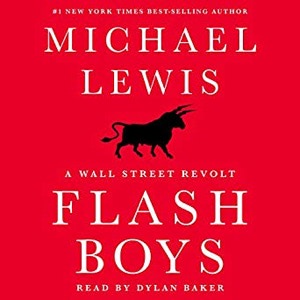
This book covers the arcane world of high-frequency trading—and it’s insane.
“In the old days—before, say, 2007—the speed with which a trader could execute had human limits.”
“Then came the so-called flash crash. At 2:45 on May 6, 2010, for no obvious reason, the market fell six hundred points in a few minutes. A few minutes later… it bounced right back up to where it was before. If you weren’t watching closely you could have missed the entire event—unless, of course, you had placed orders in the market to buy or sell certain stocks.”
“The high-frequency traders wanted to obtain information, as cheaply and risklessly as possible, about the behavior and intentions of stock market investors. That is why, though they made only half of all trades in the U.S. stock market, they submitted more than 99 percent of the orders: Their orders were a tool for divining information about ordinary investors.”
-
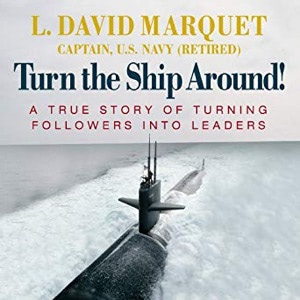
I can’t think of a better book on leadership. Real stories, concrete examples, practical advice. I’ll be revisiting this one.
“We’re taught the solution is empowerment. The problem with empowerment programs is that they contain an inherent contradiction between the message and the method. While the message is ‘empowerment,’ the method—it takes me to empower you—fundamentally disempowers employees. That drowns out the method.”
- Use “I intend to…” to turn passive followers into active leaders.
- Resist the urge to provide solutions.
- Eliminate top-down monitoring systems.
- Take deliberate action & think out loud.
- Don’t brief, certify.
- Specify goals, not methods.
- Use immediate recognition to reinforce desired behaviors.
- Encourage a questioning attitude over blind obedience.
-
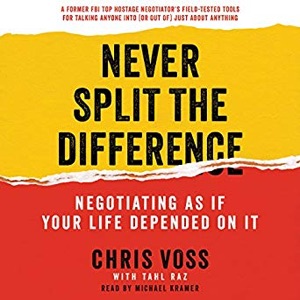
Game changer. For a long time, I’ve felt deep down that negotiating for things is just manipulative and that compromise is the best we can hope for. This book changed that for me. Now I just need to practice, practice, practice.
“Negotiation is the heart of collaboration. It is what makes conflict potentially meaningful and productive for all parties.”
- Let what you know (your known knowns) guide you but not blind you. Every case is new, so remain flexible and adaptable.
- Summarize until you hear “That’s right.” (Beware “You’re right” and “I’ll try.”)
- “When someone seems irrational or crazy they most likely aren’t. Faced with this situation, search for constraints, hidden desires, and bad information.”
- “Get face time with your counterpart. Ten minutes of face time often reveals more than days of research.”
Music
Here’s a list of the albums I listened to most this year, in the order I first listened to them.
-

Punk rock from the early 2000s.
-

Raw, melodic, experimental rock.
-
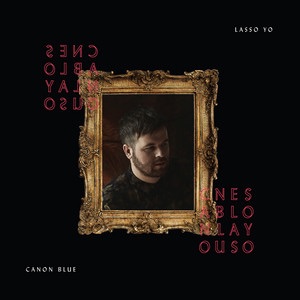
Indie/electronic. Music to get work done.
-

Easy listening indie rock.
-

Post-hardcore. On loop.
-

Flawless. On loop.
-

Easy listening electronic.
-
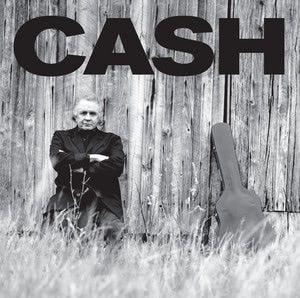
Country legend. Sweet covers.
-
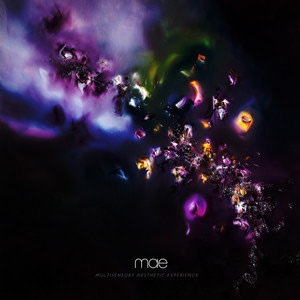
Beautiful.
-
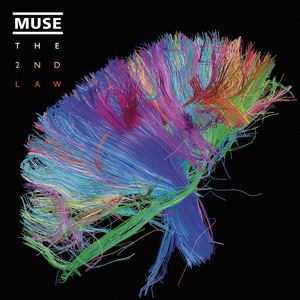
Power rock. Music to get work done.
-

Rock for rock’s sake.
-

Funk for life.
-

Heavy blues rock. Best Black Keys yet.
-

Indie rock. All the feels.
CodePen
To close, here’s a collection of pens I made this year.
It’s mostly experiments with CSS Scroll Snap, looking for ways to either replace JavaScript in complex layouts or simply improve the usability of mobile tables.
There’s also a handful of interesting flexbox techniques (e.g., Masonry Lite), plus some breakdowns on how background-images work.
Tools
Experiments
Examples
- How does
background-imagescale? - How does
background-positionwork? - Example responsive hero using
object-fit, viewport sizes, andmin-height - How to contain images in a defined boundary (with Internet Explorer support)
- How to make a
<table>scrollable with flexbox - How to make a side-scrolling section with “fixed” headings
- Flexbox “Holy Albatross” with 2 columns
- Blurry backgrounds with
backdrop-filter - Example
paginate()function
Today I Learned
:first-of-classwith the subsequent sibling selector- Different ways to create columns
- Font
coloralso affectsborder-color - How to
classList.remove()multiple classes Object.assigndoes NOT deep clone objects